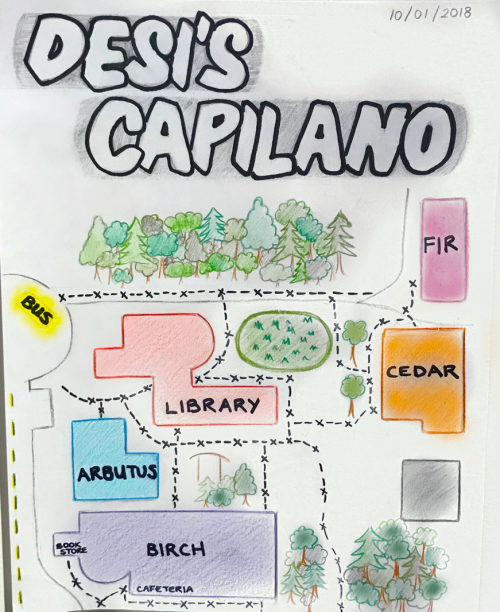Still a qualitative methods researcher
Since beginning my academic career at Capilano University in the fall of 2014, I have focused most of my coursework in English, Women’s and Gender Studies, and Anthropology. Many of the courses where I have received my highest marks within these fields have been qualitative research methods-based. However, the qualitative research methods that I have learned and applied in these courses have been limited to observation and content analysis. In LBST 200 Refocusing Knowledge: Introduction to Research Methods, I gained qualitative research methods skills that I had not yet been exposed to, especially interviewing and handling material found in archives and special collections. I came into this course with an established preference for qualitative research methods (over quantitative research methods) and the knowledge and skills I gained from this course have greatly complemented and furthered my academic skills and interests.
In spring 2019 I commence my first Liberal Studies Tutorial, focusing on cross-cultural masculinities with Professor Maureen Bracewell. Much of this Tutorial will require content analysis of different textbook chapters, case studies, and ethnographies. The coding technique for content analysis that I learned in LBST 200 will help me recognize and organize similar ideas across these multiple texts.
Given that my final year at CapU is fast approaching, I am beginning to put thought into my Graduating Project. If I choose to pursue the same direction as my spring Tutorial for my Graduating Project (for example, examining masculinities at CapU) the observation and interview skills that I learned in this course will be very applicable. In the course module on observation, I learned how to conduct time-pressured observational note taking (class assignment) and critical observation (module assignment). These skills will be useful in conducting observational research on masculinities-in-action at CapU. In the course module on interview skills, I learned how to prepare for and conduct my first semi-structured interview (with a “student-stranger”). These skills will be useful for finding individual perspectives on and, embodiments of, masculinity at CapU. I should note that before completing this assignment I would never have thought to conduct an interview for my Graduating Project!
I found the course material on “Drawing to See” with guest speaker Professor Sandra Seekins and the module on archival research very interesting and hope to find ways to incorporate these research methods into my Graduating Project. As pertaining to the archival research methods module, this course provided my first exposure to archives – I didn’t know that archives were publicly accessible before this course. I accessed both the North Vancouver District Archives and the Capilano University archives and performed archival research with materials from both.
Thank you Professor Ashley and Professor Zamorano for an interesting and inspiring term!
